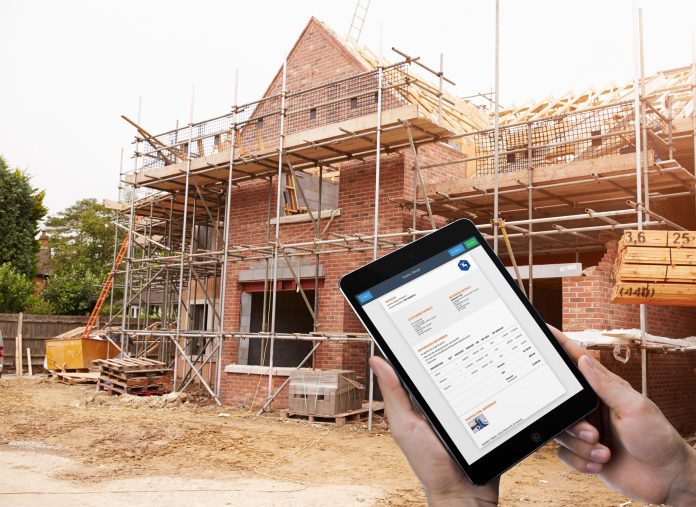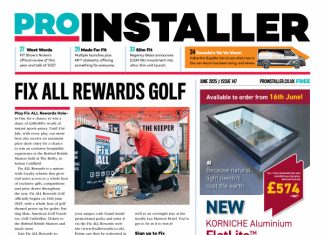Many people dream of starting their own business and while many succeed, many fail too. It can be very rewarding but there’s no doubt that it’s also hard work. Benjamin Dyer of Powered Now looks at how you can assess your likelihood of success and how to keep your chances as high as possible.
Getting started
Hundreds of thousands of people start businesses every year and a good chunk of these are installers.
There are two crucial elements to a successful business and these are the ability to do professional work and finding enough work in the first place.
Unfortunately, a few people start-up because they keep on getting fired for doing a poor job. That’s the very worst reason and cannot lead to success. Instead, there will be constant confrontation with customers, problems with people paying bills and even issues with trading standards. It’s much better to seek out a career where you have more natural ability. “Know your strengths and weaknesses” advises Alan Cope of Southwest Spas.
Quality comes first
Most installer businesses and particularly small ones, get the majority of their work by recommendation and repeat business. That’s why quality of work is so important. If you leave every customer with the impression that they have received good work for a reasonable price, you will succeed.
That’s the reason why you have to be realistic with yourself. Can you be bothered to do good work when you are your own boss? It’s not good enough to be good at the job, you have to be self-motivated too.
Jessica Harris of Girl Power sees it this way: “reliability and honesty are key.”
Finding initial work
Reputation is great for getting work. But when you start out you don’t have any reputation. That’s why it may make sense to slowly build up some evening jobs and weekend working for friends and family to get you started. That way taking the plunge is much less risky.
In our experience, some people have got their first work with folks they already know, some posted leaflets through all of the houses in the surrounding streets, some placed ads in the local newspaper and some approached larger contractors to do some subcontracting for them. Finally there’s Rated People, Checkatrade and My Builder.
Think carefully about costs
Remember to budget for the minimum equipment you need to do the job. Good tools are worth it in the long run, but when you are starting up don’t go overboard.
Having said that, it’s all too easy to get carried away. Running a successful business is all about generating a profit, not spending money. There is always a tension between investment and waste. Never investing is a poor choice but so is wasteful spending.
Don’t get caught out by tax
Unfortunately, in our world we not only have to satisfy our customers, there’s HMRC as well. That’s Her Majesty’s Revenue and Customs. The very minimum you must do when you get started is to call the self-employed help line on 0300 200 3504 and register with the tax authorities. If your last 12 month’s sales ever get to £83,000 then you must also register for VAT. Do not ignore this.
It’s also possible and quite cheap to set up as a limited liability company. This has both advantages and disadvantages. It will mean that you have to file annual accounts and an annual return with Companies House, which is more hassle and will need an accountant. It’s the accountant that can advise whether you should set up this way or not.
The most important and simplest piece of advice is to keep records of all of your sales and costs in a single place. Without this you cannot demonstrate your profit and HMRC will have to estimate. And their guess will be a lot higher than yours would be. Even if it’s in a shoe box, put every single supplier invoice and details of receipts from customers all in one place. Then there’s a chance of getting your tax return right. A little bit of effort up front can save a world of pain later.
There is also the construction industry scheme (CIS) if you act as a sub-contractor to others. You need to keep records of any deductions the contractors take from your invoices to put these on your tax return.
Every self-employed installer has to do an annual tax return. Then there is a quarterly VAT return if relevant and annual accounts and annual company return if you are a limited liability company.
It may well be worth using an accountant. More than 80% of tradespeople use an accountant for advice. The best ones will come from recommendation.
Get the price right
Installers that do good work have every right to make a decent living. In fact, being friendly and flexible should make you easier to work with so you shouldn’t be too much cheaper than larger companies.
You are not in business just to make your customers happy, so you shouldn’t absorb costs which are not your fault and couldn’t have been foreseen without an intrusive survey. In fact you should always have terms and conditions to exclude the cost of fixing things like crumbling walls behind a heavy layer of paint.
After poor work, the worst mistake is pricing too low. It’s best to work out how many days a week you will do paid work after allowing for bank holidays, holiday, buying tools, time to win new work, sickness etc. After that calculate the minimum, after tax, you can live on. Then divide that by the number of days you are able to work. If you are charging less than that per day you are going to go out of business.
The last point on price is that customers that only want to talk about price are usually best avoided.
Use a system
A lot of installers starting their own business can get into a mess with paperwork. Then it takes a lot of time and effort to sort it out. And believe me that’s not enjoyable work. The best advice is to consult an accountant from day one as well as selecting software like the app from my company, Powered Now, or one of the alternatives. These will make managing paperwork much easier.
Recording invoices and expenses professionally from day one means that you will be paid faster and paperwork will take much less time. My customers save on average around 3 hours per week.
Watch the cash flow
Running out of cash is the reason so many start-ups fail. Keeping costs as low as possible is the first thing to look at. Living with parents helps hugely even if it isn’t cool.
Always get your invoices out as quickly as you can. It’s hard, but it’s worth it. You can remember exactly what you need to charge. The client is more likely to pay quickly when the job is top of their mind. You don’t want to be asking for the money after the client has spent it on a holiday deposit. A smartphone based app helps with quick invoicing as well as keeping track of anyone that hasn’t paid.
If you have significant material costs, it’s best to get the client to pay for them up front. This cements their commitment and saves your cash flow from taking the strain.
Always remember that you are going to get a tax bill. One of the best ways of handling this is to put a proportion of your payments – typically 20%, into a separate bank account as you go along.
Stay on the right side of the law
Obviously installers have to endure lots of regulations from being Gas Safe Registered through to being qualified to issue Part P electrical certificates. There is also Health and Safety law. In fact, Health and Safety regulations tend to have some application in pretty much every trade. Ensure you are properly qualified and informed and don’t take risks. In the worst case, it could mean jail.
Make sure you get insurance too.
Just get started
It is hard to start a business and there is a lot to think about. Having said that, success and being your own boss can’t be bettered. Millions of small businesses have succeeded in the UK so it just remains to wish you good luck.
About the author
Benjamin Dyer is CEO and co-founder of Powered Now. Powered Now’s mobile app aims to take the pain out of paperwork for installers, builders and other trade businesses.












